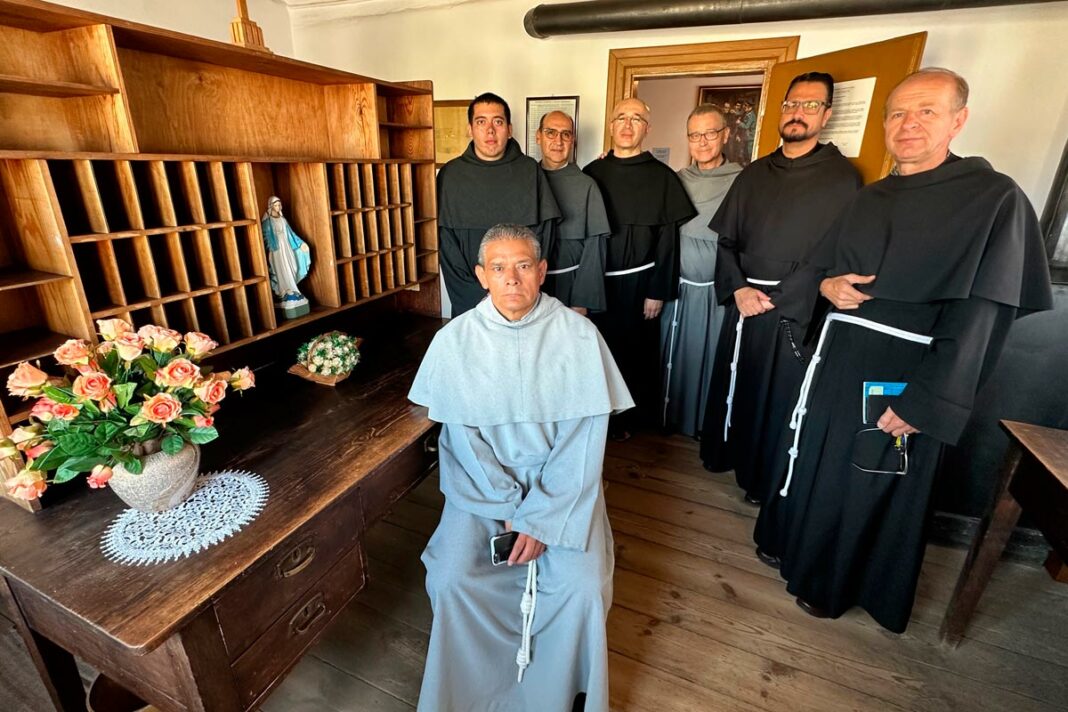From June 24 to July 3, 2023, six Spanish-speaking friars participated in the first annual “Kolbe Project” initiative, organized by the Province of St. Anthony and Bl. James of Strepar in Poland (Cracow). The event was led by Friar Piotr BIELENIN, in collaboration with Friar Dariusz MAZUREK.
The participating Spanish-speaking friars included the Minister Provincial of the Province of Our Lady of Guadalupe in Mexico, Friar Mario CASTRO MARTÍNEZ; the Custos of the Provincial Custody of St. Francis in Bolivia, Friar Ronald ARMIJO ZELADA; the Delegate of the Provincial Delegation in Chile, Friar Fabrizio RESTANTE; the General Delegate for the Assistance of the Militia of the Immaculata (M.I.), Friar Gilson Miguel NUNES; the M.I. National Assistant for Spain, Friar Jesús M. JIMÉNEZ MARTÍNEZ; and the M.I. National Assistant for Colombia, Friar David TABARES VÉLEZ.
The Kolbe Project is an immersion program in the Conventual Franciscan spirituality of St. Maximilian Kolbe. The participants study some of his letters and hear lectures about his journey and legacy. Finally, the participants visit some of the most significant sites related to Father Kolbe, such as the places where he grew up, his master work of Niepokalanów, and the Auschwitz concentration camp, where the participants will take part in deep prayer and meditation, especially in the cell where the saint died.
This first annual Kolbe Project helped the friars rediscover the great patrimony of Franciscan spirituality particularly that which comes down to us from Kolbe to enhance and enrich the charism of the Friars Minor Conventual. Furthermore, the Kolbe Project invited the participants to a more profound life and a real desire for holiness as friars, to lead many others to embrace the ideal of holiness and constant conversion under the maternal intercession of Mary Immaculate, who guides us in conforming ourselves to Christ.
We hope to offer variations of the Kolbe Project in the four languages of the Order. We also hope to enrich the interior life of the laity who are attracted to our spirituality. Thus, we may make the heritage of St. Maximilian better known in society, starting with our Conventual Franciscan spirituality, which strongly invites us to turn our hearts to the Holy Gospel at the present time.
Friar David TABARES VÉLEZ














